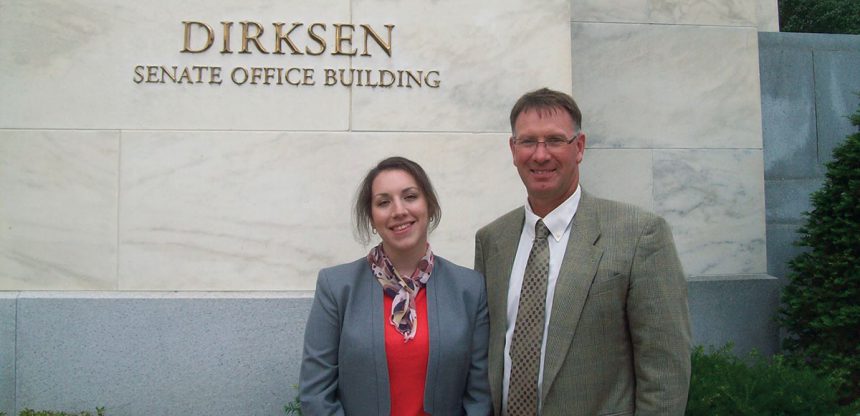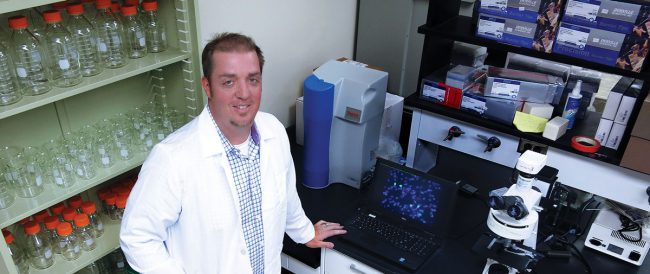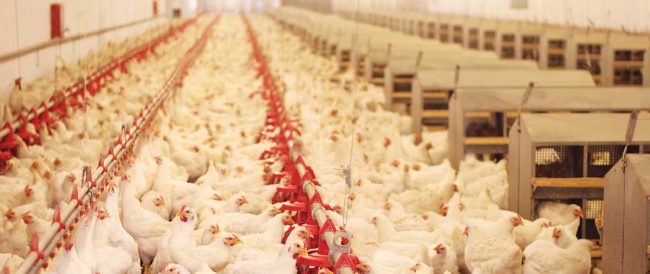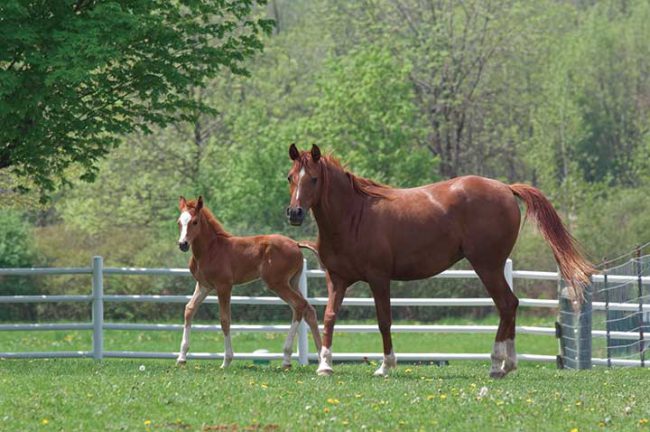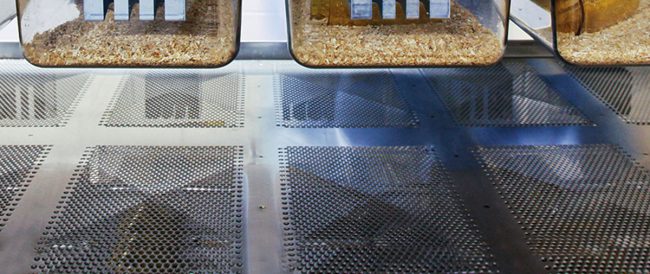 Read More
Read More
A small program with enormous implications
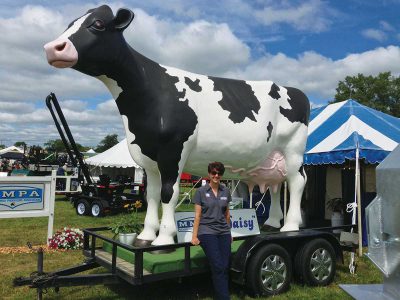
For almost as long as there have been people to get sick, foodborne diseases like salmonella, E. coli, and listeria have been doing just that. We now understand these pathogens and how to prevent them, but that does not mean the world is free of these or other zoonotic threats to human safety.
Generating new knowledge and putting existing knowledge into practice requires contributions from multiple disciplines, including veterinary medicine.
To help meet the need for well-trained professionals that work to keep our food safe, the Michigan State University College of Veterinary Medicine established the Summer Food Systems Fellowship Program in 2006. The program, national in scope, is designed for students with a career focus in the food industry, which includes public policy and animal health. It also includes public health, agribusiness, pharmaceutical medicine, and regulatory veterinary medicine.
In collaboration with the animal agriculture industry and governmental entities, the program provides training experiences that broaden students’ vision of and experiences in the food industry. These unique and valuable summer experiences add important value to the students’ education.
From its earliest years the program has provided diverse opportunities.
The breadth of experiences available to students continues to grow. In 2013, the US Senate Committee on Agriculture, Nutrition, and Forestry joined the program and provided Chelsea Render (DVM ’14) the opportunity to travel to Washington, DC, and work in the office of Senator Debbie Stabenow. An opportunity to work on the Farm Bill led Render to take an 18-month break from her studies to continue working with Stabenow. In 2013, Heather Roney of the Class of 2016 went to Washington, DC, where she also was involved with work on the bill.
2015 FSF Partners
Michigan Milk Producers Association
Michigan Department of Agriculture
AntelBio
Merck Animal Health
Pfizer Animal Health
USDA APHIS VS
Michigan Department of Community Health
Michigan Farm Bureau
Production Animal Consultants
Neogen, Inc
American Association of Bovine Practitioners
National Food Safety and Toxicology Center
Michigan Veterinary Medical Association
MSU Training Center For Dairy Professionals
MSU Department of Animal Science
National Pork Board
USDA NIFA (ISE Project)
US Senate Agriculture Committee
American Association of Swine Practitioners
CVM Meadowbrook Chair
Michigan Animal Health Foundation
Michigan State Fair - Miracle of Life Project
“For me, this fellowship was a life-changing opportunity that has inspired me to find other ways to get involved and advocate for the needs of the agricultural community,” said Roney.
In 2013 Christina Fenske, a second-year veterinary student, was matched with the Michigan Milk Producers Association. Her project focused on protocols to reduce the risk of mastitis, an inflammation reaction of the udder tissue in cows that is the single biggest cause of antibiotic use in the dairy industry.
“I had no large animal experience going in, and I believe it will make me a better veterinarian,” said Fenske. “I learned a tremendous amount about the dairy industry, and this experience definitely made me a more knowledgeable consumer.”
Another student, Carrie Szybisty, was matched with the world’s largest producer of medicine and vaccinations for pets and livestock, Pfizer/Zoetis in 2013. She learned about the time, work, and money that are put into the research and development of pharmaceutical products.
“When I reach to grab a drug off the shelf, I’ll know a lot more of the meaning behind the label and will be able to connect to the client more when I use a product,” said Szybisty.
Szybisty was based in a biosafety level 2 building, which meant she had to be trained in handling pathogenic agents.
“The measures taken to maintain seronegative status, to ensure proper animal care and welfare, and to protect human health were way beyond what I expected,” Szybisty said. “I was required to shower in and shower out, and extensive personal protective equipment was required. While my skin may not have enjoyed taking an average of 6 showers per day, it was a necessary part of the research process that kept everything separate to ensure nothing was transmitted between animals and humans.”
Students in the program gain real-world experience from working with companies. These experiences often provide the basis of an enriching career.
“Veterinarians are integral to ensuring a wholesome and safe global food supply,” said Dr. Dan Grooms, professor at the College of Veterinary Medicine. “New infectious diseases are emerging, there are increasing threats of exotic pathogens, expanding problems with food safety and security, and decreasing profit margins that all contribute to new realties and challenges. Our mission is to train a generation of students that will face these profound changes that challenge public health, animal wellbeing, and economic security.”
Students in the program work within miles of MSU and across the globe. Jenna Kline, in the 2008 cohort, was one of the students who worked on the Michigan Department of Agriculture and Rural Development Avian Influenza Surveillance Program. From 2011 to 2013, 18 students from the program went to Chennai, India, where they spent seven weeks conducting surveillance research on Tuberculosis, bovine viral diarrhea, and Brucellosis.
As part of the program, students have faced diseases including scrapie, bovine TB, viral hemorrhagic septicemia, and Johne’s Disease. They have been involved in work to build sustainable cattle feeding programs in India and programs in Michigan to reduce the use of antimicrobials.
The program continues to strengthen its partnerships and the opportunities available for students. It’s a small act with enormous implications—for the students, and for global health.
